I have just read a book by national geographic. In this book they write about many of the photographer of the mag. I noticed that all of the people they interviewed use camera setups that cost less than a thousand dollars. I really think to take a good picture you need an excellent understanding of light and how to use it to get what you want. This does not mean you can't get the pictures you want with expensive cameras. I have a D70 with a sb600 and a few lenses. So I have spent a fair amount of money and am not a pro photographer. An artistic eye will go the distance in photography. All this babbling is just my opinion though.
Navigation
Install the app
How to install the app on iOS
Follow along with the video below to see how to install our site as a web app on your home screen.

Note: This feature currently requires accessing the site using the built-in Safari browser.
More options
You are using an out of date browser. It may not display this or other websites correctly.
You should upgrade or use an alternative browser.
You should upgrade or use an alternative browser.
why does photography cost so much?
- Thread starter nikon90s
- Start date
Hertz van Rental
We're supposed to post photos?
Photography is so expensive because every one associated with it in any way wants to own a Porsche.
photo gal
No longer a newbie, moving up!
Actually, I'm happy with my mustang!!Hertz van Rental said:Photography is so expensive because every one associated with it in any way wants to own a Porsche.
ajmall
TPF Noob!
- Joined
- Mar 24, 2004
- Messages
- 656
- Reaction score
- 0
- Location
- Leicester, UK
- Website
- www.photodrew.co.uk
I'm a student so that puts me on a tight budget as it is but I have learnt to save things and put the odd £50, £100 or whatver into a savings account when i can so I can buy myself a big present such as a nikon lens, flash or studio equipment which is what i'm saving for now.
I wouldn't really call any hobby expensive as such although obviously there are some exceptions. It's as expensive as the user makes it I'd say. If you want, you can spend £50 on photography or £5000
I wouldn't really call any hobby expensive as such although obviously there are some exceptions. It's as expensive as the user makes it I'd say. If you want, you can spend £50 on photography or £5000
panzershreck
TPF Noob!
Marctwo said:How sharp is sharp enough? Once you get pin sharp, is only razor sharp then good enough? I personally don't even like sharp for most shots because the world just doesn't look like that to me. Sharp photo's are like macro for me as they show the reality, but not as we see it.
i have yet to see anything as sharp as human 20/20 vision besides the gigapixel cameras, and those are still limited by light capturing technology, lagging human vision in color, detail, brilliancy, etc.
some things are good sharp, others not... you always see these ultra-fine detailed landscape photos with gigantic resolutions taken with expensive cameras, but i've seen people get interesting landscape photos with $10 wal-mart digital cameras whose lens is so tiny and detail so low, it ends up all blurry and small (840x640) resolution... but i can't see it without it
Marctwo
TPF Noob!
I can't imagine any lens that can't focus light better than 20/20 - except one that's got the lens cap on.panzershreck said:i have yet to see anything as sharp as human 20/20 vision besides the gigapixel cameras...

- Joined
- Jun 17, 2005
- Messages
- 349
- Reaction score
- 5
- Location
- Irvine, Orange County, CA
- Can others edit my Photos
- Photos OK to edit
To some extent now in the digital age photography is initially costly but then after that you really have little cost at all unless you want tons of prints. With film I still see costs but its not TOO bad. Just like many hobbies it has a larger initial cost.
darin3200
TPF Noob!
- Joined
- May 3, 2005
- Messages
- 2,078
- Reaction score
- 28
- Location
- Des Moines, Iowa
- Website
- friedrichsphotography.com
I don't think that is photography specificHertz van Rental said:Photography is so expensive because every one associated with it in any way wants to own a Porsche.
DocFrankenstein
Clinically Insane?
- Joined
- Apr 29, 2004
- Messages
- 1,646
- Reaction score
- 6
I'd be curious to see that 80$ system which includes film and processing.ajmall said:If you want, you can spend £50 on photography or £5000
ajmall
TPF Noob!
- Joined
- Mar 24, 2004
- Messages
- 656
- Reaction score
- 0
- Location
- Leicester, UK
- Website
- www.photodrew.co.uk
well it depends how many films you buy! 
photogoddess
TPF Noob!
- Joined
- Feb 29, 2004
- Messages
- 6,251
- Reaction score
- 34
- Location
- Lala Land
- Website
- www.trueblueintimates.com
- Can others edit my Photos
- Photos NOT OK to edit
The answer is simple... Because it's worth it! 

panzershreck
TPF Noob!
Marctwo said:I can't imagine any lens that can't focus light better than 20/20 - except one that's got the lens cap on.
yes, but the brain is better at processing that information than film emulsion or computer processors
as somebody who has 20/20, i've been able to see the individual stones on the side of a small old house on top of a mountain, and when looking at landscapes i can point out individual trees and their characteristics, depending on the distance (maybe at most about a mile) the individual leaves/branches, and have yet to see a photograph as good (but i'm also young, and organic with a couple million years of evolution behind the eyes, which still pale in comparison to other animals)
DocFrankenstein said:I'd be curious to see that 80$ system which includes film and processing.
easy, disposable camera + processing at wal-mart = about $20
usayit
No longer a newbie, moving up!
- Joined
- Nov 15, 2003
- Messages
- 9,521
- Reaction score
- 347
- Can others edit my Photos
- Photos OK to edit
Just like any hobby, it becomes a very important part of who we are. In many ways, spending the extra dollars is or seems like the easiest way to enhance that experience. So we simply just do it with our wallets wide open.
I'm so lucky my wife understands my hobbies and habbits; Computers ( I work in IT ), Cars ( 4 and counting ) and Photography ( I've been shooting as long as I can remember.. I love making portfolios ). In addition to my Canon system, I've also got into collecting old pentax cameras. So much is invested that I'm currently working on getting everything appraised for submittal to my insurance company.
If I had one bit of advise... dont get into reselling and trading of camera equipment if you can't seperate your love for photography ( and equipment ) from business. Thats how ended up with a bag full of nice L lenses and high end cameras. All were obtained relatively cheap with the intention of flipping them for cash. I keep making the mistake of "trying" them out before selling and simply fall for them. Oh well.. no regets.
Oh add a new expense to the mix.... I finally got a job that allowed for time spent at a short photography workshop. I loved it... and now i'm spending cash on photography classes at the local college. hehe...
I'm so lucky my wife understands my hobbies and habbits; Computers ( I work in IT ), Cars ( 4 and counting ) and Photography ( I've been shooting as long as I can remember.. I love making portfolios ). In addition to my Canon system, I've also got into collecting old pentax cameras. So much is invested that I'm currently working on getting everything appraised for submittal to my insurance company.
If I had one bit of advise... dont get into reselling and trading of camera equipment if you can't seperate your love for photography ( and equipment ) from business. Thats how ended up with a bag full of nice L lenses and high end cameras. All were obtained relatively cheap with the intention of flipping them for cash. I keep making the mistake of "trying" them out before selling and simply fall for them. Oh well.. no regets.
Oh add a new expense to the mix.... I finally got a job that allowed for time spent at a short photography workshop. I loved it... and now i'm spending cash on photography classes at the local college. hehe...
Marctwo
TPF Noob!
Your brain uses a subconcious sharpening/interpolating process called 'best guess based on previous experience'. You don't see things as clearly as you think you do.panzershreck said:yes, but the brain is better at processing that information than film emulsion or computer processors
I could mention zoom capabilities but you may think that's unfair (I don't) so why don't we just go straight down to a lowly 4" x 6" which when held at a reasonable viewing distance (about 14" or so) would blend perfectly into the scene you are viewing. It's easier to see this with one eye closed.
Now it's no good using a landscape scene, we need something that will give very clear evidence of which has more detail - your human eye view or the 4 x 6 print. An eye chart is ideal for this purpose and there are plenty to download from the internet.
Try it.
So you'd get 4 of those for $80? Not much of a hobby.panzershreck said:easy, disposable camera + processing at wal-mart = about $20
Hertz van Rental
We're supposed to post photos?
This is why everything is so expensive.darin3200 said:I don't think that is photography specific
But people in Photography just want it sooner.
(I always preferred Maserati :mrgreen: )
Similar threads
- Replies
- 4
- Views
- 228

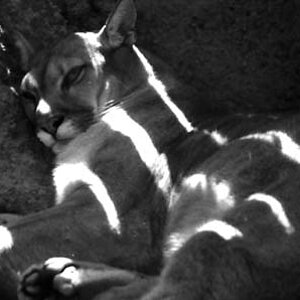
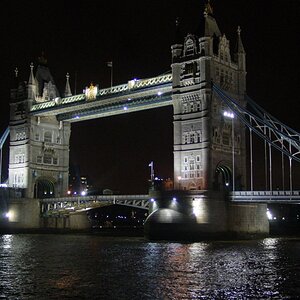
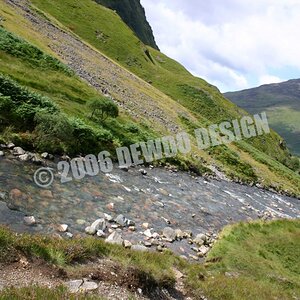
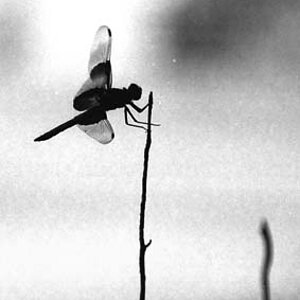

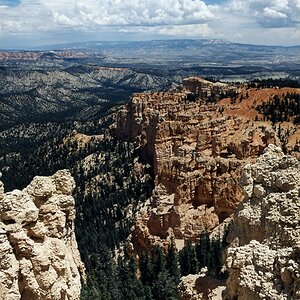
![[No title]](/data/xfmg/thumbnail/30/30862-d177ccfc3a82369b1005863cfe5fd13d.jpg?1619734481)
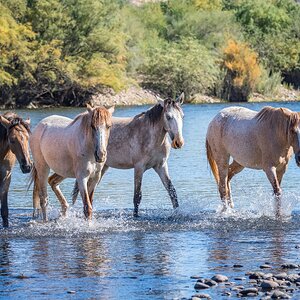
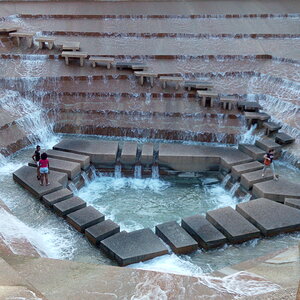

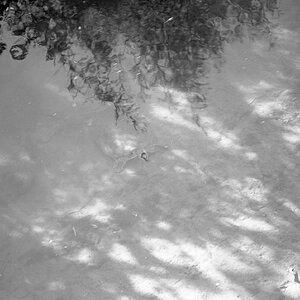
![[No title]](/data/xfmg/thumbnail/42/42467-e93a2a1ecfbab434ac7d27c9d0dd0a02.jpg?1619740193)